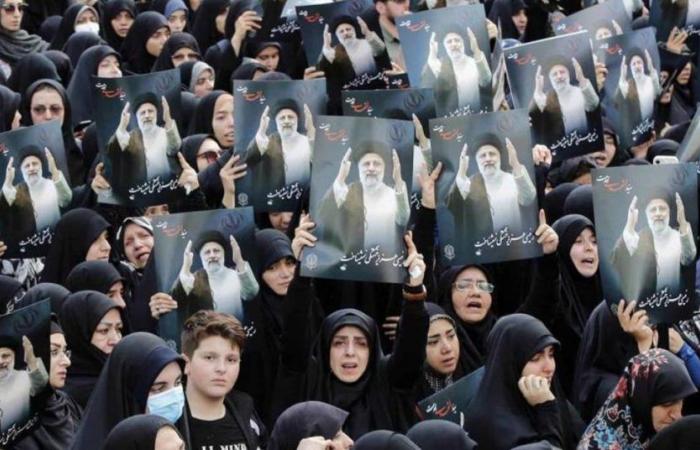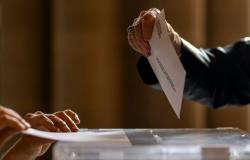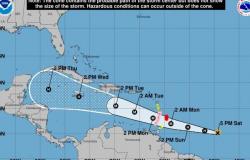Tehran/A pragmatic conservative, a revolutionary and a reformist are risking the Iranian presidency this Friday in elections without a clear favorite, and marked by the population’s apathy due to the poor economic situation and social repression.
The death of President Ebrahim Raisi in a helicopter crash in May has forced the country to hold early elections for the country’s second-highest office after Supreme Leader Ali Khamenei, who serves as the country’s head of state with sweeping powers.
Even so, the figure of the president has a great impact on the lives of Iranians and that power will fall to one of the three favorites, such as: the pragmatic conservative Mohamad Baqer Qalibaf, the ultraconservative Saeed Jalili and the reformist Masoud Pezeshkian.
Three politicians with almost opposite views will have to deal with a very complex geopolitical moment, with the war in Gaza, tensions over Iran’s nuclear programme and the US elections in a few months. Local polls point to a possible second round in a week, as it seems that no candidate will win 50% of the vote.
The former general of the Revolutionary Guard, former police chief, former mayor of Tehran and president of Parliament, Qalibaf has highlighted his executive experience and promised a “proud” Iran, as well as a new nuclear agreement with the West, although with nuances.
At 62 years old, he has a pull among non-ideological young people, that is, not interested in Islam, who give more importance to economic issues, and he is remembered in Tehran as a good mayor.
/ EFE
On the conservative spectrum, his rival is the ultra Saeed Jalili, who has been described as a “true product of the Islamic Revolution”, “intransigent” and opposed to the West at 58 years old.
His campaign for Friday’s presidential election has been based on slogans rather than concrete plans and he is seen as the status quo candidate, closest to the late President Ebrahim Raisi but more ultra-conservative.
Iranian conservative media have portrayed Jalili, 58, as an intellectual loyal to Islamic “ideals and principles” and leading a “simple life,” something valued by the country’s population.
/ EFE
At the opposite extreme is the cardiac surgeon Masoud Pezeshkian, former Minister of Health who has been gaining weight during the electoral campaign with a message of rapprochement with the West and criticism of the veil.
He has received the support of former presidents Mohamed Khatami (1997-2005) and Hasan Rohaní (2013-2021) of the reformist bloc – which seeks a certain opening of the country – after the participation of a moderate was not allowed in the 2021 presidential elections, and he belongs to the country’s Azeri minority, which could help him.
Analysts consider that a high turnout of over 60% would boost Pezeshkian’s chances, a high number of votes that the authorities also ironically ask for to legitimize the Islamic Republic.
/ Abedin Taherkenareh/EFE
Skepticism and apathy reign among voters amid a burdened economy
Among voters, however, skepticism and apathy reign in the midst of an economy weighed down by 40% inflation, a devalued rial and 20% youth unemployment. Added to this is the issue of social freedoms, especially the Islamic veil, a hot topic since the death of Mahsa Amini in 2022 after being arrested for not wearing the Islamic veil properly, which sparked strong protests against the authorities.
“I am not going to vote because of all the problems there are, from the economy to the treatment of women because of the veil issue (…) Whoever is president is not going to change anything,” says the woman, who wears her hair uncovered,” Marjan, a 42-year-old beauty products representative from Tehran, told EFE.
The vast majority of young people interviewed by EFE stated that they would not vote to avoid participating in a political system in which they do not believe, which highlights the abyss between the clerics who govern the country and part of its population.
This apathy among the 61 million voters is a cause for concern for the Islamic Republic, which attaches great importance to participation in elections as a sign of its legitimacy and popular support. The parliamentary elections in March saw the lowest turnout in the 45 years of the Islamic Republic, with only 41% of the electorate going to the polls, while in the 2021 presidential elections, 48% voted.
Thus, Khamenei has called on Iranians to vote in the elections to “defeat the enemy” and elect a president who believes in the principles of the 1979 Islamic Revolution.






